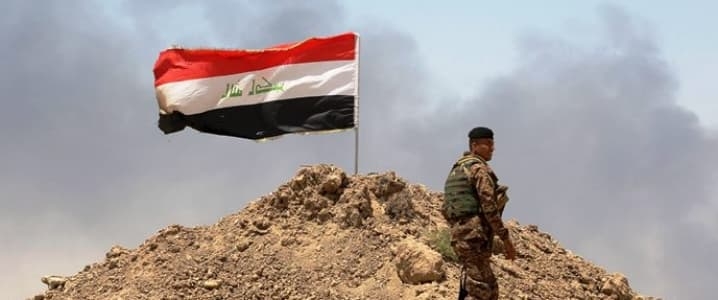Iraq’s election on May 12 has upended the political landscape in the country. The incumbent Prime Minister, Haidar Al Abadi, lost the election as voters favored Iraqi nationalist Moqtada al-Sadr, and Iran-backed Hadi al-Ameri. The result is inconclusive, and the country will have a rocky path to creating the next government.
It will be at best challenging, if not impossible, for Al Abadi to stay in power after the elections (once the final results are announced). He performed a balancing act between Washington and Tehran, keeping enough distance from each so as not to anger the other. Al Sadr is known for his fiery anti-US rhetoric and his independence. He would steer Iraq closer to the Gulf Arab states although he represents a mostly Shiite constituency. Al Ameri is much closer to Tehran, and unpalatable to both the Saudis and Americans.
The next phase in Iraq will involve a lot of horse-trading, which may lead to strange bedfellows. It will also intensify the struggle between foreign powers seeking to influence Iraq’s political and economic course. Iran, which was expected to gain influence through the election, is presumably pleased with Al Ameri’s performance, but less so with former Prime Minister Nouri Al Maliki, a staunch ally. Al Maliki’s bloc came in a distant fourth. Saudi Arabia, which has courted Al Sadr and hosted him in the kingdom, will be pleased with the performance of his bloc but will fear Al Ameri, whose bloc is made up mostly of members of a Shia militia that was formed to fight ISIS. The US finds itself without a strong ally after the humiliation of Al Abadi, and will have to follow Saudi's lead to counter Iran’s influence.
Perhaps the most important result of the election is a de-emphasis of sectarian coherence. The Shiites are divided between supporters and opponents of a stronger Iranian influence. The Sunnis remain marginalized but will likely throw in their lot with Al Sadr. The Kurds are focused much more on internal divisions than on their differences with Baghdad. Related: China Looks To Capitalize On Cheap Iranian Oil
The failure of incumbent Al Abadi to secure more than third place throws the political scene into confusion. Forming a new government will take a long time, and this will delay reconstruction plans, augment social tensions in some areas, and discourage investment, including in the energy sector. ISIS still maintains a network of sleeper cells in Iraq, and will feed on divisions.
This is a guest blog by Noam Raydan, Geopolitical Analyst at ClipperData. She focuses on political and security developments that could disrupt petroleum flows around the globe. She previously worked as a reporter for the Wall Street Journal and the Financial Times at their Beirut bureaus, covering Lebanon, Syria, and Iraq. She has also been a research analyst and consultant, focusing on Lebanese and Syrian affairs.
By Noam Raydan via Clipperdata.com
More Top Reads From Oilprice.com:
- Brent Breaks $80 On Flurry Of Bullish News
- IEA: High Oil Prices “Taking A Toll” On Demand
- The Regulations That Could Push Oil Up To $90


















